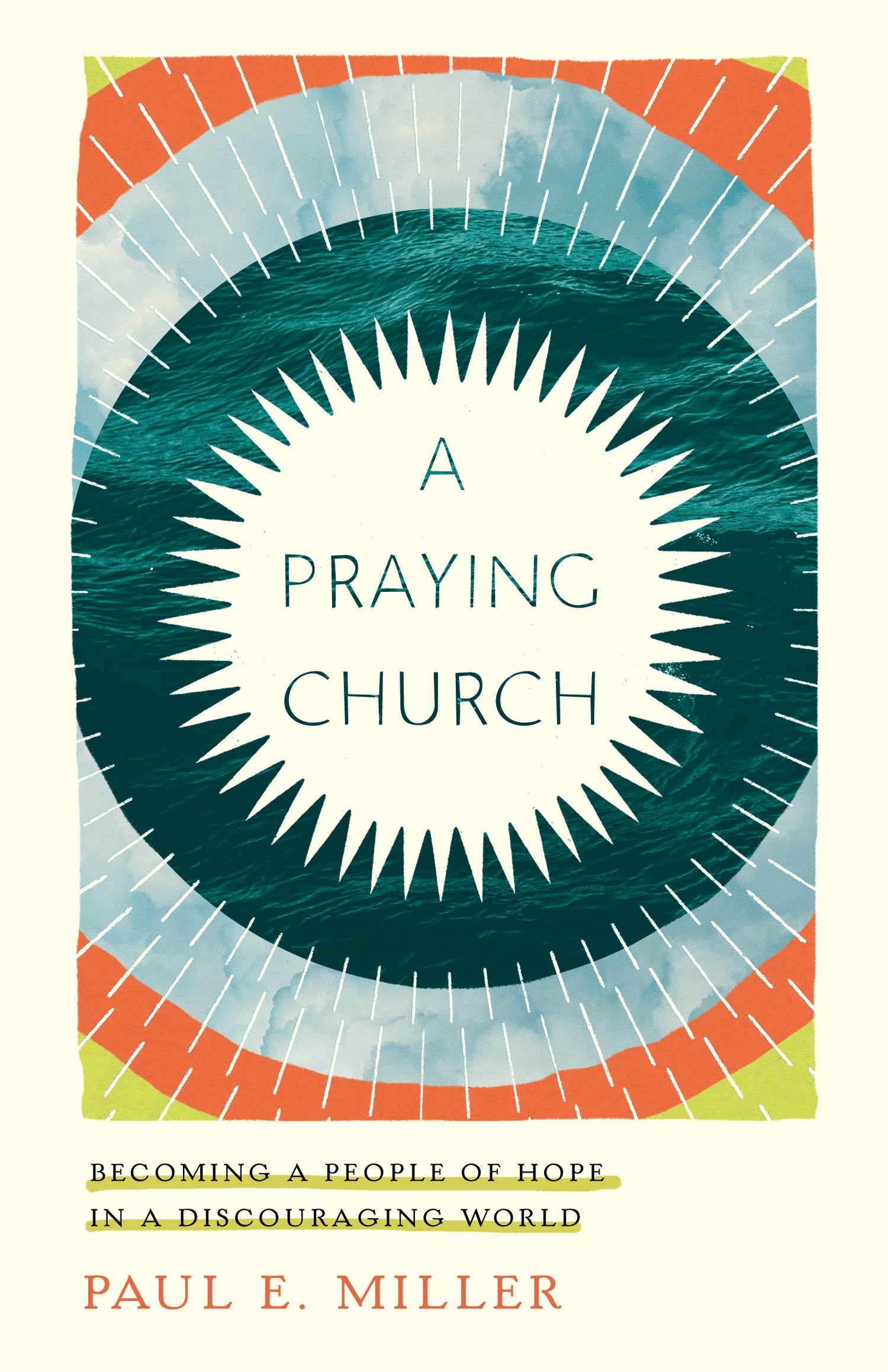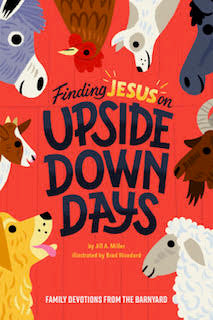America is infected with tribalism like never before. “What would Jesus do?” seems simplistic, almost trite, but I can’t think of a better time than now to reflect on that question.
What is the difference between a tribe and tribalism? Tribes are a normal part of life. They can be as simple as a high school hockey team or a label like “Presbyterian.” Our family is a mini-tribe. Tribalism turns a tribe into a center of worship. Tribes tend towards tribalism, largely because that’s what the heart does. In tribalism, the tribe then becomes not just an affinity grouping but a source of life and meaning. In short, the tribe becomes an idol.
It’s easy to see tribalism in others, but it’s hard to see our own. I was in my late 30s when I finally realized I’d grown up with “Miller tribalism.” We were a western, pioneer family, rich with stories of mountain lions, shipwrecks, and gun slingers. I still love the stories, but most of them described how we were just a little smarter, a little wiser, and a little better than everyone else. And sometimes it wasn’t a little, but a lot. At times, boasting was like breathing for us. Those Miller stories gave me a huge self-confidence, which God eventually popped.
What makes tribalism so powerful and hard to unwind is that a tribe can easily become your source of life and meaning. Your tribe doesn’t just “have your back,” it makes sense of your world. It constructs narratives that help you cope with life. Eventually, you stop dialoguing with people from different tribes, and just talk with people you agree with.
Jesus’ world was more riven with tribalism than our own, so we can learn from how he responds:
1 — Jesus is aware of tribal differences.
Jesus is aware of the tribal differences that plagued his world. Here’s a short list of tribal tensions that we come across in the New Testament: Jews vs. Romans, Samaritans vs. Jews, Jew vs. Greek, Greek Jews vs. Hebrew Jews, Clean Jews vs. Unclean Jews, Sinful Jews vs. Pure Jews, Pharisees vs. Sadducees, Rich vs. Poor, Men vs. Women.
When Jesus asks the Samaritan woman (John 4) for a drink, he knows that Jews abhor drinking from vessels that Samaritans have used. He’s aware that Pilate has power over him and he openly respects that power when he tells Pilate in John 16, “My kingdom is from another world.” That is, “Pilate, I’m no threat to you.” I was telling this to my granddaughter Claire, who’s off to college this year, and she said, “Jesus is woke!”
It seems trite to say that Jesus was aware of tribalism, but when you are in a more privileged tribe, you can miss what it feels like to be in a “weaker” tribe. Reflecting back on my ten years working in urban Christian schools, that was true of me. I loved the kids and parents I worked with. I was immersed in their world, caring for them, sacrificing for them, and just enjoying them. We, and especially Jill, endured significant financial hardship during those years. We started a Christian school in West Philly (CitySchool.org) with the express purpose of fostering a multi-racial witness to Jesus. Our first three children went to the school and all developed deep cross-cultural friendships. We were “all in.”
And yet, I missed something. In talking to some of my former students several years ago, I realized that to be a black person in America is to be in a suffering community. I didn’t realize the accumulated pain in the black community from the years of slavery, then Jim Crow, and then wider cultural racism that the black community has faced. I think America has made tremendous strides, but the shared pain remains. So when there is a report of a racial incident on TV, that brings up this entire “file drawer” from the past. I wish I had been more aware of that pain.
What would I have done differently? I would have sought to draw my students out more and listen more. Black history month was part of our curriculum, but I didn’t realize how much it meant to them. I would have spent more time on their history, encouraging them to value and enjoy their heritage. I wish I’d had us look together at the lament tradition that has been such a deep part of the African-American experience. If I were to do it all over again, I would try to be less “colorblind” and more aware of the story and beauty of my students’ “tribe.”
2 — Jesus Relentlessly Crosses Tribal Boundaries.
Jesus is famous for his cross-tribal love. In every single situation where he is confronted with a tribal barrier, he crosses it. He absolutely refuses to be caught up in his own tribe’s tribalism (Jews are better, purer, etc); nor will he be caught up in other tribal narratives. He is a relentless lover.
So with Pilate, who had a well-earned reputation for hating Jews: Jesus loves by probing his heart (“Is this from yourself or did others tell you about me?”), calms his fears (“My kingdom is from another world”), and speaks to his deepest needs (“Everyone on the side of truth listens to my voice.”). He treats Pilate like a human, even though Pilate relentlessly mocks Jesus (“So you are a king!”). [1]
Not only that, but Jesus has table fellowship with Jews that support the Roman oppressor. Zacchaeus was what we now call a Quisling, someone who betrays their own tribe to support someone else’s tribe. Everyone hates Zacchaeus. He profits from the oppressor. When Jesus invites himself over to Zacchaeus’ house, the city of Jericho recoils from Jesus.
It’s hard to get our modern minds around how deep the Samaritan-Jewish hatred was. When Jesus was a teenager (about 8 AD), the Samaritans secretly spread human bones throughout the Temple so the Jews couldn’t celebrate Passover. So when Samaritans refused to extend hospitality to Jesus and his disciples, the disciples (naturally) wanted to call down fire from heaven on their village. Jesus rebuked them.
With the Samaritan woman, Jesus crosses two tribal barriers: Samaritan vs. Jew and Men vs. Women. Surprisingly, the disciples see the latter as the bigger barrier. When the disciples return from the village, they are shocked to see him even speaking with a woman.
Jesus invites others with him in this journey. One of the most famous examples is the Parable of the Good Samaritan. Right at the point when we are expecting a poor Jewish peasant to care for the wounded man by the side of the road, Jesus substitutes a wealthy Samaritan businessman as the hero. The effect is to make the parable itself loathsome to Jesus’ Jewish listeners. It’s hardly different from making a Nazi the hero or a Black Lives Matter rioter the hero, or even a white supremacist. Jesus is not condoning for a minute the theology or behavior of the Samaritans. In fact, he tells the Samaritan woman, “Salvation is of the Jews.” He doesn’t lose truth, but “truth” doesn’t cause him to lose love.
So without giving up our viewpoint, we can enter other people’s worlds. Loving someone who you know to be wrong and even listening to them can open up some amazing doors. It’s striking in the movie, Unplanned, to see a pro-life couple befriend and love Abby Johnson, the director of a Planned Parenthood clinic in Houston. Or to hear how a pastor and his wife reached out to a militant lesbian college professor, Rosaria Butterfield, inviting her regularly to their house for dinner.
3 — Jesus is Prudent in a Tribal World.
Jesus’ prudence in a world riven by tribalism is striking. The Pharisees try to trap Jesus by asking him if taxes should be paid to Caesar or not. If Jesus says yes, the people will hate him. If he says no, he is potentially in trouble with the Romans. They are trying to hang him with tribalism. Jesus’ answer (“Do you have a coin? Whose face is on the coin?”) brilliantly defuses the tension. In effect, Jesus says, “You are carrying Caesar’s picture in your own pockets, and you promote him every time you bring out a coin.” Coins were like 1st century Twitter--rulers used them to convey short messages. When the Jews rebelled against Rome in 66 AD, they immediately started minting their own coins. When the Romans defeated them in 70 AD, Emperor Vespasian issued a new coin “Iuda capta” (Judah Captured). Jesus points out that the world is filled with gray areas, and in fact, Caesar has a sphere of responsibility and authority that they are inadvertently acknowledging by using Roman coins. So “Give to Caesar what is Caesar’s, and to God what is God’s” simply recognizes that gray area.
Tribalism refuses gray areas. So “Black Lives Matter” is either evil or good. When in fact, it is a bit gray. Yes, the organization has Marxist foundations[2]; but yes, black lives do matter. If you respond to someone who says, “black lives matter,” with “all lives matter,” you miss the moment. Why not just affirm, “Yes, black lives matter”? Likewise, the current media narrative tends to reduce problems in urban areas to racism. Yes, historically, racism has been a problem, but my years in the city taught me firsthand the enormous complexity of urban problems, beginning with fatherlessness.
In the ancient world, prudence meant different things to different people. For the Greeks, it meant controlling your emotions because emotions can get overwrought and out of whack. There is wisdom in that, but the downside is that it leads to suppressing your emotions. For the Jews, prudence meant caution in a world of evil. That is, you needed to weigh your words because people are quick to judge, slander, and gossip. So the less you say, the less of a target you become.
Prudence is inseparable from a life of prayer. That is, if you seek to love across tribal barriers you will move into unknown territory where people are quick to “cancel” you. So what do you say? When do you say it? How do you say it? All these questions cast you on the Spirit for wisdom. The more daring your love, the greater your need for wisdom and the more you find yourself quietly praying because like Jesus “you do nothing on your own.”
One of the results of Jesus’ relentless boundary crossing is that he regularly gets cancelled. I was skiing with one of my grandchildren, Maggie (age 11), and while riding up on the chair lift she told me that I’d just triggered her! After I’d stopped laughing (which took a while), I began to think of other possible triggers. We were having fun, but in a world where “people don’t have any skin,”[3] and are thus much touchier, it is wise to be more careful in what we say. Jesus’ prudence gives us a path forward.
4 — Jesus is Creating a New Tribe.
Mark tells us that relatively early in Jesus’ ministry, he become so busy that he didn’t have time to eat. When Jesus’ mother and brothers hear this, they do an intervention. Upon arrival at Peter’s house in Capernaum, the door keeper gets a message to Jesus that his mother and brothers have arrived, but Jesus doesn’t even come to the door. Instead Jesus turns to the crowd of his disciples and says, “Who is my mother and my brothers? Everyone who does the will of God is my mother, my brother, and my sisters.” In a world where family is your primary tribe, that borders on insult. In fact, almost assuredly, Jesus’ family was shocked. What’s going on?
Jesus is creating a new tribe in his body—the body of Christ. Remarkably, it trumps all other tribes, it demands your complete allegiance, and yet you can still be a member of all your other tribes. In fact, it makes you better at your current tribe. Lamin Saneh, a West African professor at Yale, said about Christianity, that “the missionaries did not make us into Europeans; they made us into better Africans.” Jesus doesn’t erase our tribal heritages; he makes them come alive. He makes them work.
One of the earliest documents of the early church, written about 115 AD when disciples of the apostle John were still alive, Aristides wrote a long explanation of Christians to the Roman emperor Hadrian. In his letter, Aristides describes Christians as a “new tribe” that loves the other tribes: "Their oppressors they appease and make them their friends; they do good to their enemies... they love one another, and from widows they do not turn away their esteem; they deliver the orphan from him who treats him harshly. And he, who has, gives to him who has not, without boasting. And when they see a stranger, they take him in to their homes and rejoice over him as a very brother; for they do not call them brethren after the flesh, but brethren after the spirit and in God. And whenever one of their poor passes from this world, each one of them according to their ability gives heed to him and carefully sees to his burial."[4]
This new Jesus tribe includes polar opposites from all the tribes, “from every tongue, nation, and language.” So even among the twelve disciples Jesus has the two political extremes of the day. He has Matthew the Tax Collector who is supporting the Roman oppressor and Simon the Zealot who is trying to overthrow the Roman oppressor. Translated into our day, it’s like having one disciple with a Black Lives Matter t-shirt and another with a MAGA hat.
All Jesus’ teaching on relationships—forgiveness, loving our enemies, and including the outsider—eradicates tribalism. So what’s the great task of the Jesus’ tribe? To love one another. We can give an answer to the question, “What would Jesus do?” He would love. But we need the Spirit of Jesus in us to enable us to love like him.
Our single task is to help the church look like Jesus. We want to prepare the bride in this strange season. We’ve known for some time that that happens best in suffering—so we pray and work against suffering—but when the Lord permits suffering, it is the perfect vessel for the church’s beauty treatment.
The beauty of Jesus is love at its most robust and glorious; it is light so bright that it exposes all other “lights” as false. I hope that this look at how he interacted with the tribalism of his day will help you navigate our increasingly tribal world. May we love like him!
Looking for ways to go deeper? Consider joining a seeJesus Online study, or listen to our podcast, Seeing Jesus with Paul Miller.
Author: Paul Miller
Sources
- For a fuller description, listen to episodes 5-7 of our podcast, Seeing Jesus with Paul Miller.
- “The official Black Lives Matter movement, started by Alicia Garza, Patrisse Cullors, and Opal Tometi, is indeed built on a Marxist foundation...” “Social Justice, Critical Race Theory, Marxism, and Biblical Ethics” by Kelly Hamren, featured in The Exchange with Ed Stetzer. Christianity Today Online, July 3, 2020.
- My father, Jack Miller’s insight in the 1970’s on modern culture.
- Aristides, Apology, 15.








